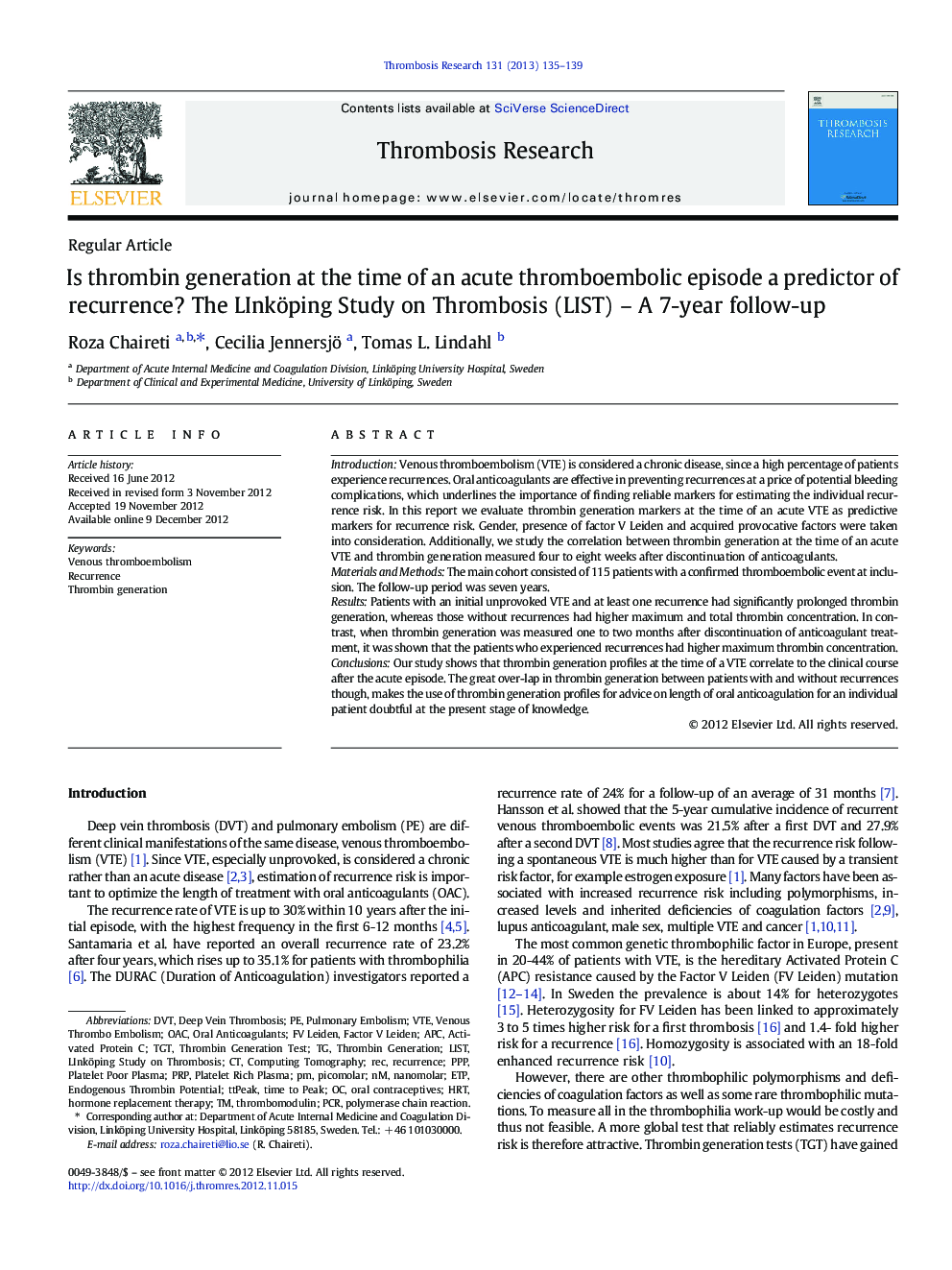| Article ID | Journal | Published Year | Pages | File Type |
|---|---|---|---|---|
| 6002815 | Thrombosis Research | 2013 | 5 Pages |
IntroductionVenous thromboembolism (VTE) is considered a chronic disease, since a high percentage of patients experience recurrences. Oral anticoagulants are effective in preventing recurrences at a price of potential bleeding complications, which underlines the importance of finding reliable markers for estimating the individual recurrence risk. In this report we evaluate thrombin generation markers at the time of an acute VTE as predictive markers for recurrence risk. Gender, presence of factor V Leiden and acquired provocative factors were taken into consideration. Additionally, we study the correlation between thrombin generation at the time of an acute VTE and thrombin generation measured four to eight weeks after discontinuation of anticoagulants.Materials and MethodsThe main cohort consisted of 115 patients with a confirmed thromboembolic event at inclusion. The follow-up period was seven years.ResultsPatients with an initial unprovoked VTE and at least one recurrence had significantly prolonged thrombin generation, whereas those without recurrences had higher maximum and total thrombin concentration. In contrast, when thrombin generation was measured one to two months after discontinuation of anticoagulant treatment, it was shown that the patients who experienced recurrences had higher maximum thrombin concentration.ConclusionsOur study shows that thrombin generation profiles at the time of a VTE correlate to the clinical course after the acute episode. The great over-lap in thrombin generation between patients with and without recurrences though, makes the use of thrombin generation profiles for advice on length of oral anticoagulation for an individual patient doubtful at the present stage of knowledge.
